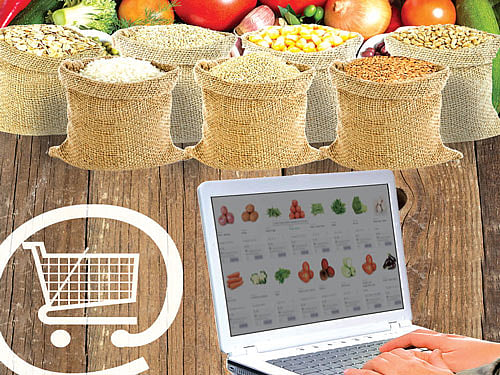
Karnataka’s model of online trading of agricultural commodities is being replicated at the national level with Prime Minister Narendra Modi launching the National Agriculture Market (NAM) scheme on Thursday.
Back home, the state has moved forward and is working towards “warehouse-based sale of commodities,” wherein godowns suitable for scientific storage of commodities will be considered as sub-market yards for online trading of agricultural produce.
In other words, notified warehouses will function as Agricultural Produce Marketing Committees (APMCs) for all practical purposes.
In the last two years, 103 of the 157 APMCs have been linked to provide a Unified Market Platform (UMP) for online trading. A licensed trader can utilise the platform to purchase agricultural produce from any of the 103 APMCs sitting anywhere in the state.
Earlier, the trader could purchase only from the jurisdictional APMC where he is registered.
So far, agricultural commodities worth Rs 23,300 crore have been transacted on UMP in the 103 markets.
Now, the department of agricultural marketing has taken things forward, proposing to make such transactions possible even at the warehouse level.
“The director of agricultural marketing can identify godowns with good infrastructure and storage facilities belonging to the state warehousing corporation, cooperatives, market committees and even private firms. These warehouses will be notified as sub-market yards and recognised as a component of market where trading of commodities can take place,” said Manoj R, managing director and CEO, Rashtriya e-Market Services (ReMS), a joint venture of the state and NCDEX Spot Exchange Ltd, which manages the UMP.
Cutting costs
The initiative will help farmers as they need not bring the commodities to the APMCs and thus, save on transportation costs.
Besides, cold storage can ensure lesser loss of commodities due to spoilage. To start with, five warehouses have been identified for the project as a pilot, Manoj said.
Manoj pointed out that farmers can use their commodities stored in warehouses to pledge for loans. The commodities stored in warehouses can be considered as collateral in availing themselves loans from banks.
The farmers can also store his/her commodities in the warehouses, postponing the sale till the market becomes favourable.